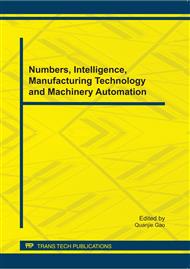p.506
p.511
p.516
p.522
p.527
p.531
p.537
p.543
p.549
A Note on “A Genetic Algorithm for the Preemptive and Non-Preemptive Multi-Mode Resource-Constrained Project Scheduling Problem
Abstract:
Peteghem et al. [1] considered resource-constrained project scheduling problem (RCPSP) with preemptive activities. However, some points should be made clear. How and when an activity is divided How many parts an activity should be splitted Whether the preemptive-based scenario is correctly performed to further improve the total makespan of a project The first two questions are not very clearly presented. As for the last question, the answer is “no exactly” after careful examination..
Info:
Periodical:
Pages:
527-530
DOI:
Citation:
Online since:
October 2011
Authors:
Keywords:
Price:
Сopyright:
© 2012 Trans Tech Publications Ltd. All Rights Reserved
Share:
Citation:


